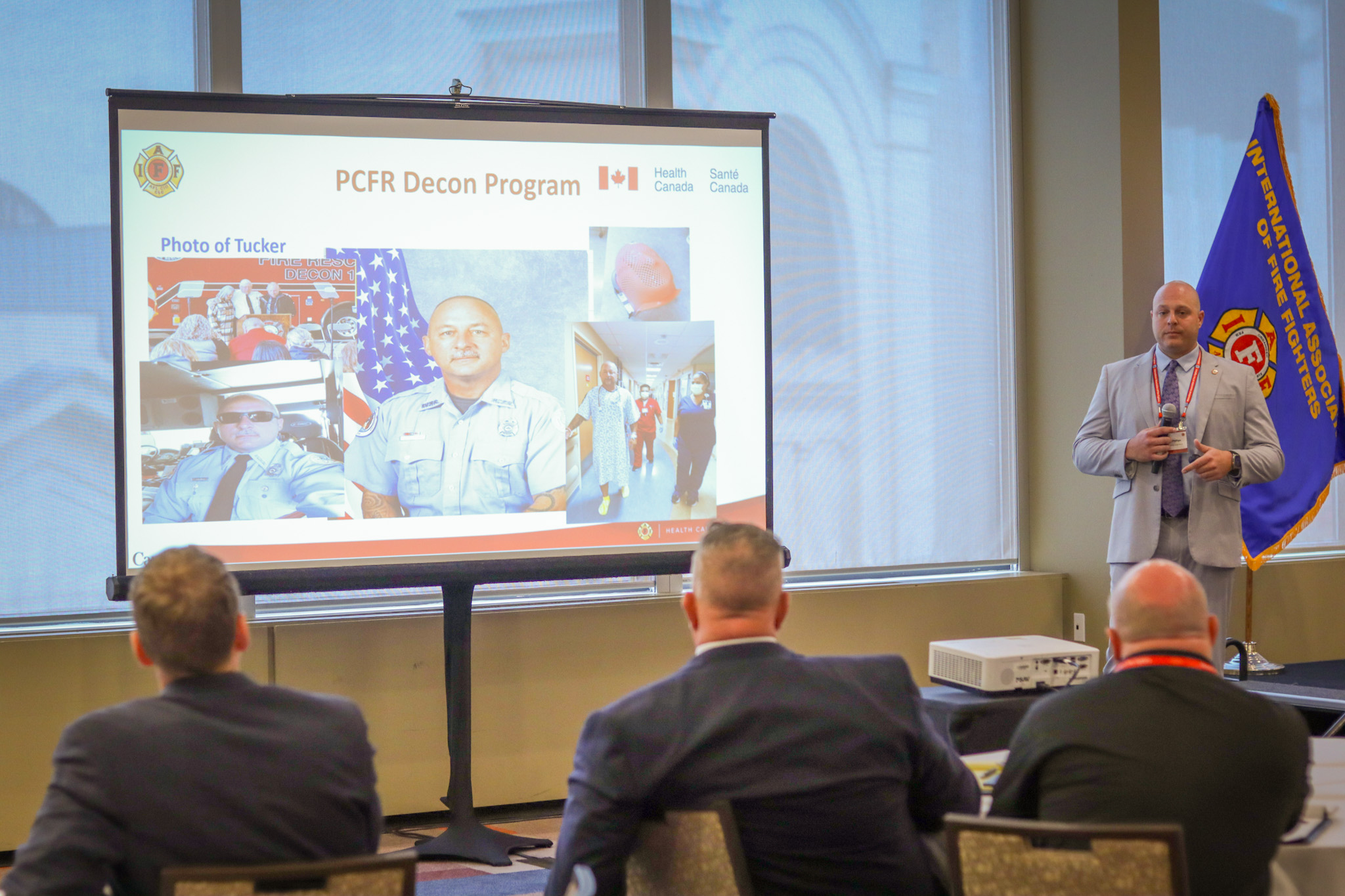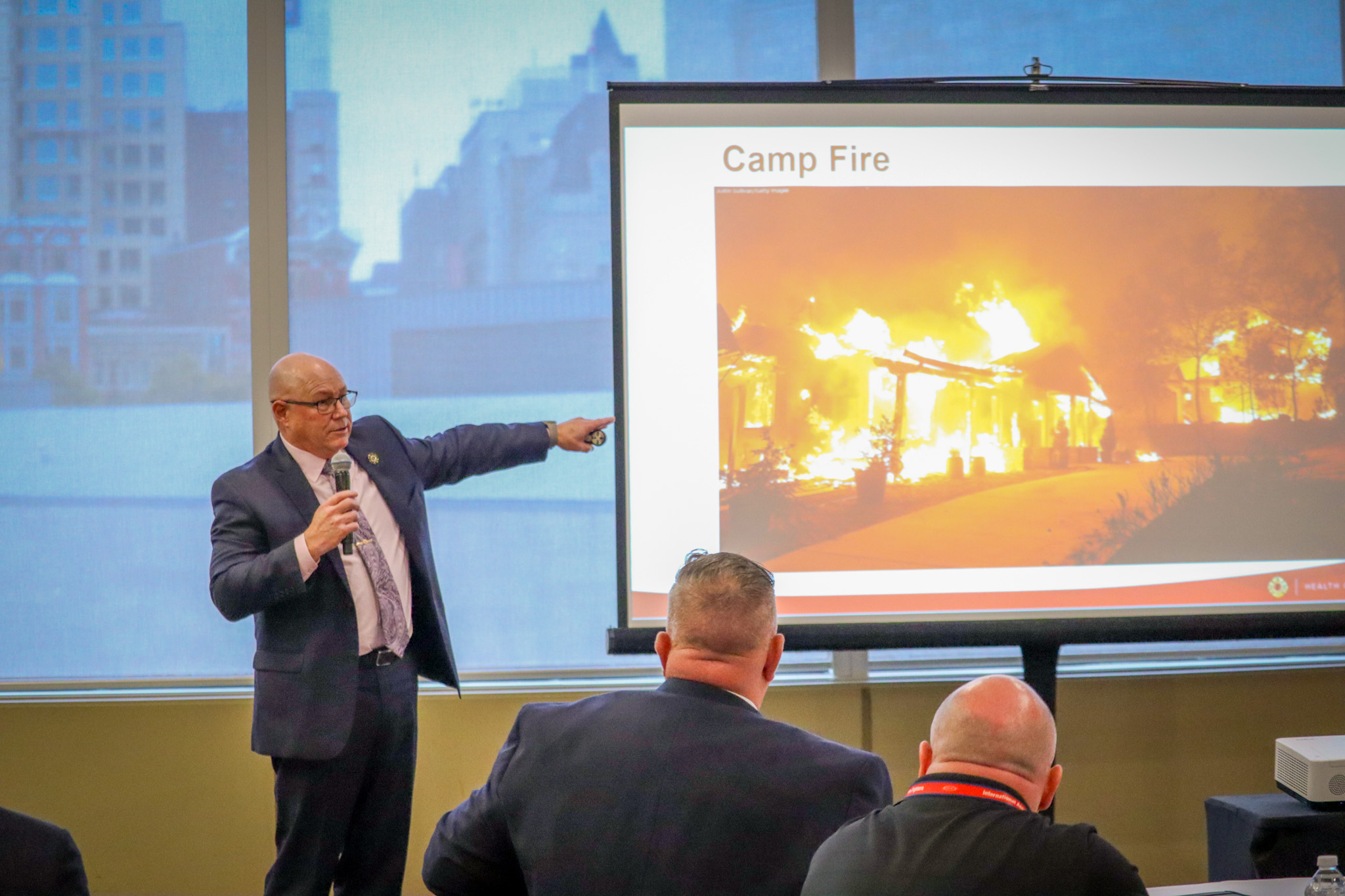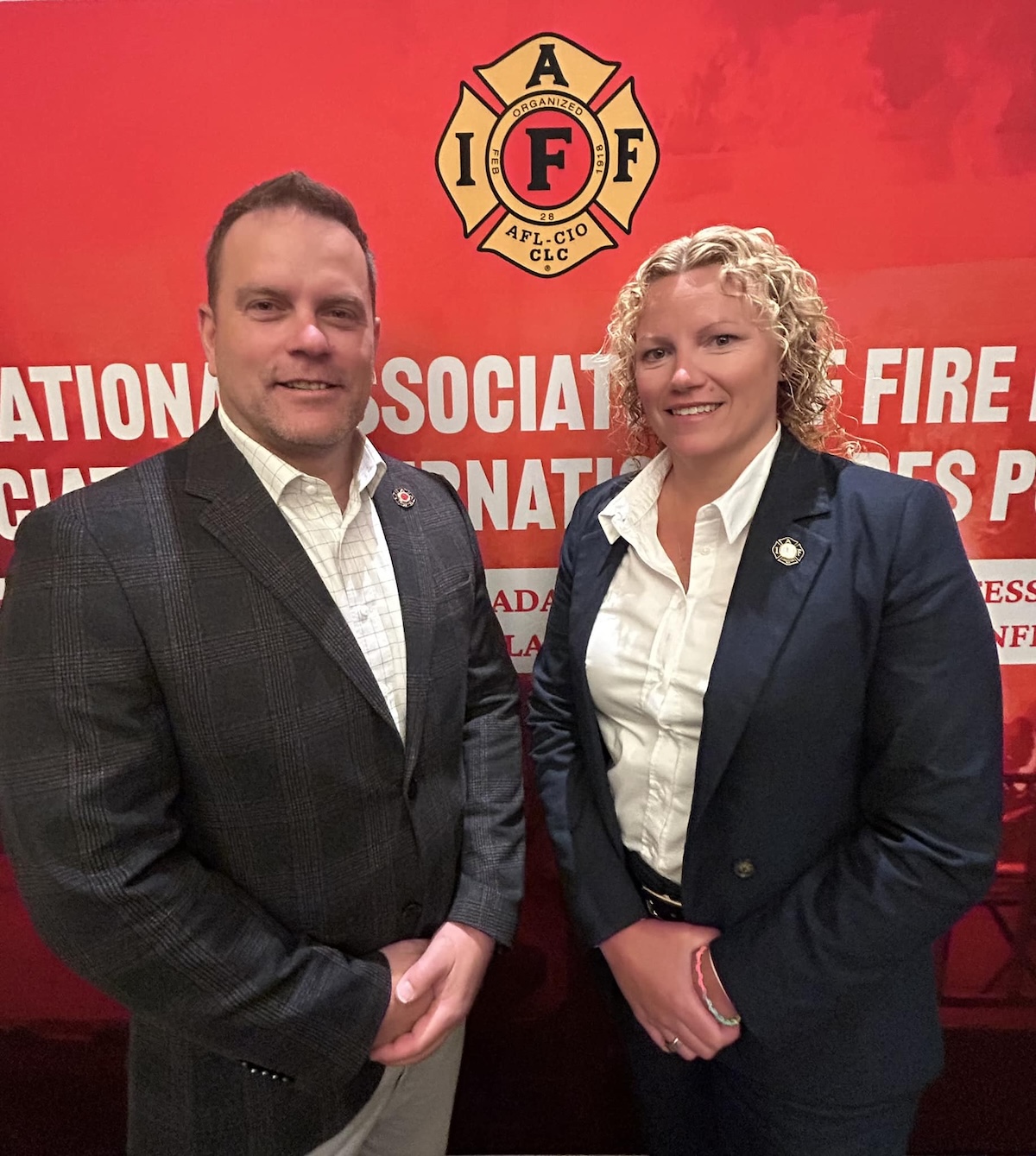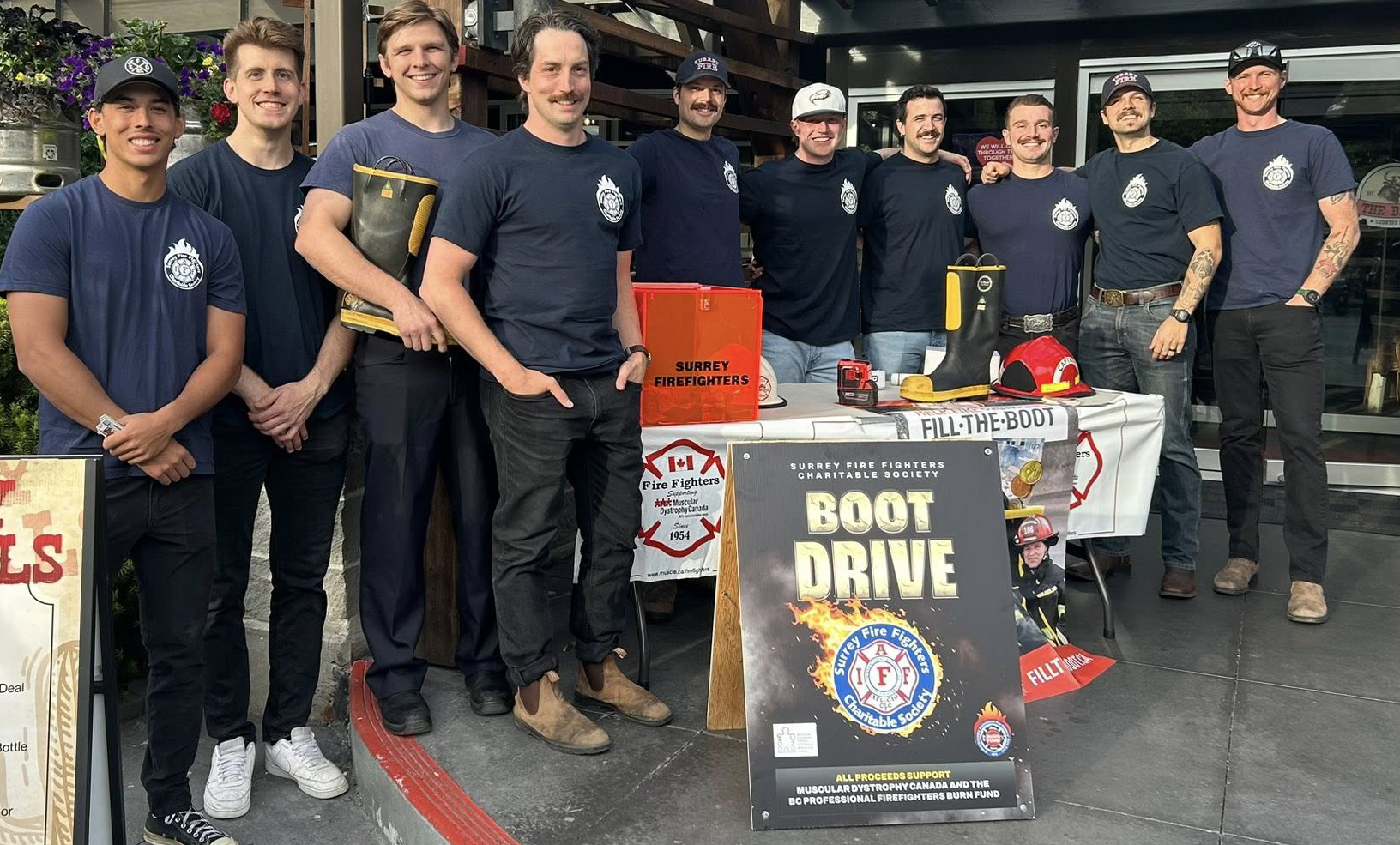
Scientists, fire industry leaders, and other key stakeholders from across North America shared research and best practices for reducing fire fighters’ cancer exposures at a two-day workshop Oct. 26-27 in Ottawa, Ont.
More than 100 in-person and virtual attendees took part in the event, which was organized by the IAFF in partnership with Health Canada. The event stemmed from discussions that followed the recent enactment of Bill C-224, which establishes a national framework for the prevention and treatment of cancers linked to firefighting.
Participants, including IAFF local leaders and academic researchers, listened to a series of informative presentations sharing the latest research and best practices for reducing fire fighters’ exposures.
Puget Sound, WA Local 1747 President and Washington State Council of Fire Fighters Health & Safety Committee Chair Kevin Rojecki outlined the scope of the problem for workshop participants, while Vancouver, BC Local 18 member Kevin Tomyk gave a presentation on best practices for limiting and remediating exposure on scene.
Pasco County, FL Local 4420 Executive Board member Dixon Phillips and Pasco County Health, Safety & Wellness Chief John Schmidt delivered a presentation outlining their new decontamination program.
Other presentations explored cancer exposure issues related to wildland urban interface response, the limitations of PPE, personal best practices, and innovations in PPE design. The workshop also featured group discussions and breakout sessions and culminated in the development of statements on best practices, harmonized approaches, and knowledge gaps.
IAFF Director of Science and Research Neil McMillan, the event’s co-organizer, said partnering with Health Canada to bring academics and fire service stakeholders together to tackle the broad topic of occupational exposure enables the IAFF to better identify the health impacts our members experience, an important step toward reducing them.
McMillan emphasized that Canada’s IAFF members are extremely fortunate to have the continued support from General President Edward Kelly and from Canadian Government officials who are dedicated to protecting fire fighters through the implementation of the National Framework for the Prevention and Treatment of Cancers Linked to Firefighting.
“The road to a safer and healthier tomorrow for our Canadian IAFF members is being paved through work being done by leaders like federal Health Minister Mark Holland, MP Sherry Romanado, and General President Kelly who are all committed to reducing the toll that cancer takes on our members.”
Minister Holland, who attended the event’s opening session, said the federal government has a duty to do everything it can to reduce the health risks fire fighters face in the course of their duties.
“That’s why this is important, and that’s why our continued collaboration between fire fighters and Health Canada in understanding those risks, mitigating those risks, and reducing them to the greatest extent possible is so essential,” he said. “In order for Canadians to be safe, we need fire fighters to be safe.”
Romanado, who introduced Bill C-224 in the House of Commons in January 2022, received a warm welcome from participants and noted that other countries are now looking at what the Canadian Government is doing to address occupational cancer in fire fighters.
“We all have the same shared goal here. We all want to make sure that fire fighters are safe, that we prevent as much as possible exposures and cancers, and also to support them should they succumb to their illness,” she said. “I want to thank you because what you are doing today is groundbreaking. What we are going to be doing is saving lives, and there is no more meaningful work.”
[vc_masonry_media_grid element_width=”3″ grid_id=”vc_gid:1698779793606-33628fbd-003a-7″ include=”114011,113985,113989,113988,113990,113987,113984,113981,114010,113974,113975,113976,113977,113978,113979,113980,113982,113983,113986,113991″ css=”.vc_custom_1698692306231{margin-bottom: 5px !important;}”]



